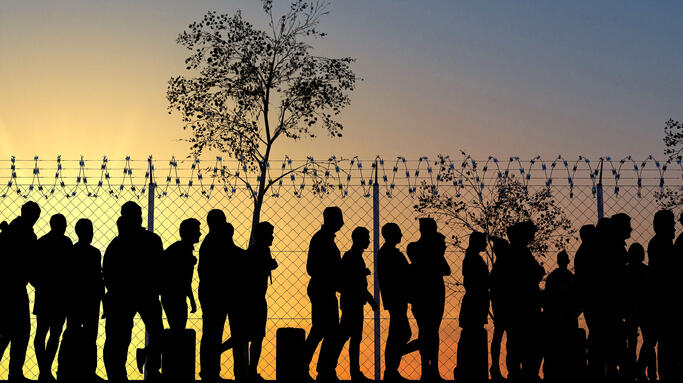
Refugees, and other forcibly displaced people, face mental distress and may be disproportionately affected by risk factors for suicide. Little is known about suicidal behaviour in these highly-mobile populations because collecting timely, relevant, and reliable data is challenging.
Researchers from LSTM, Cochrane Response, and University of Manchester have carried out a comprehensive systematic review to look at the evidence about the risk of suicide, suicide attempts, and suicidal ideation among refugees and those forcibly displaced. While the author team found that there was a need for standardization in terms of recording statistics for mental health, they found that the risks are raised in many groups, particularly those seeking asylum in two studies -although it was lower in those granted asylum and settled.
The review author team examined the results of numerous studies, screening thousands before including 87 reports of 77 different studies. The was a great deal of difference in the data sources and measurement instruments used and sample sizes varied greatly. However, while only eight of the included studies compared suicide rates among refugees with those of the host population, there was an increase in suicide rates among asylum seekers in some studies.
One of the authors of the review, Steven Senior from the University of Manchester, commented, “Large numbers of people globally are displaced as refugees and asylum seekers. These people are potentially exposed to violence, disconnected from family and wider community, suffer loss of income and potentially status, and can be subject to poor treatment in their destination countries. All of these factors are damaging to mental health. Despite this, there has been a lack of a clear synthesis on the evidence on suicidal behaviours.”
The authors hope that the review will stimulate debate among the global health community about mental health. Providing an opportunity for the World Health Organization (WHO) and research funders to create frameworks and standards to improve epidemiological surveillance and analysis of mental health indicators for marginalized populations, such as refugees and asylum seekers.
Elise Cogo, one of the authors from Cochrane Response, noted: “The review highlights the increased risks facing asylum seekers in particular, and national and international efforts should focus on protecting this group. The review also highlights the limited state of the evidence base. Establishing recognized standards for epidemiological analysis would help to create a much stronger and more consistent international evidence base, enabling more meaningful comparisons between regions and countries and helping to highlight where risks are greatest.”
This publication is associated with the Research, Evidence and Development Initiative (READ-It). READ-It (project number 300342-104) is funded by UK Aid from the UK government; however, the views expressed do not necessarily reflect the UK government’s official policies.
Cogo E, Murray M, Villanueva G, Hamel C, Garner P, Senior SL, et al. (2022) Suicide rates and suicidal behaviour in displaced people: A systematic review. PLoS ONE 17(3): e0263797.